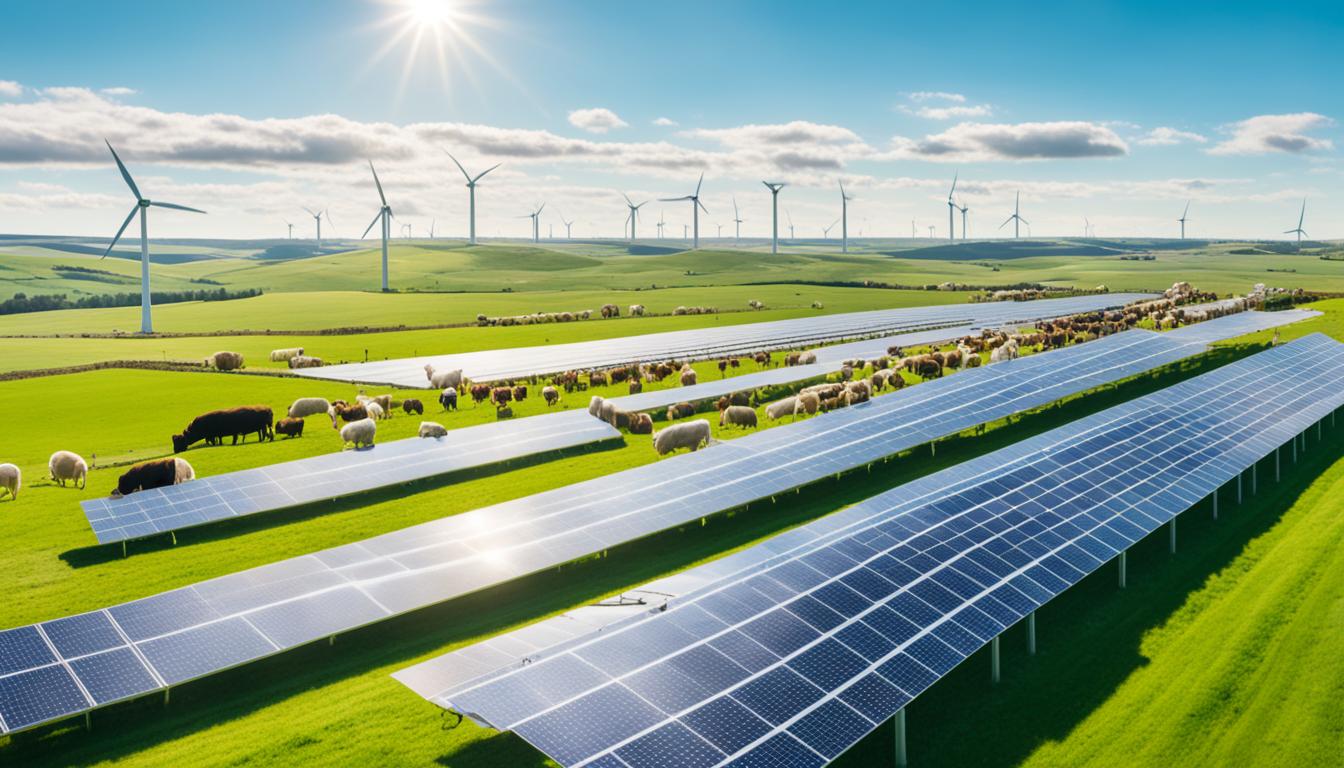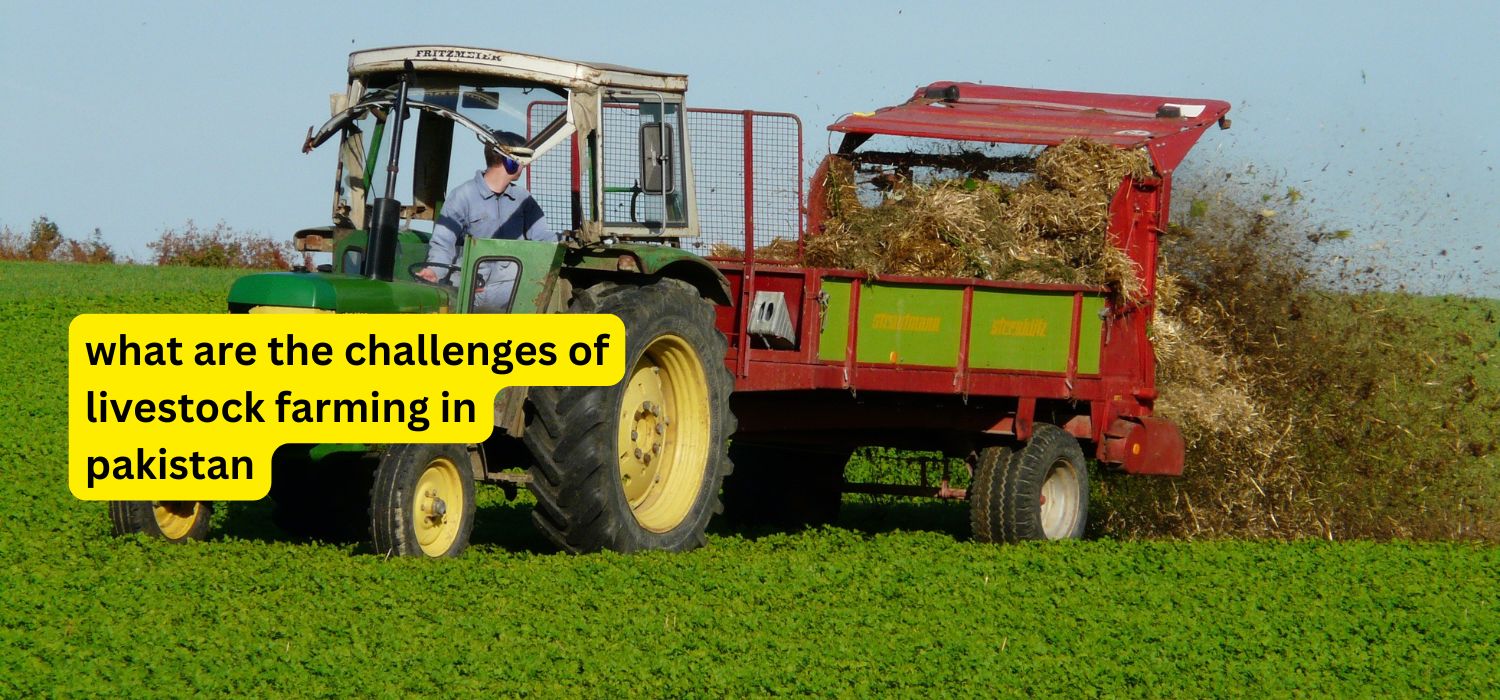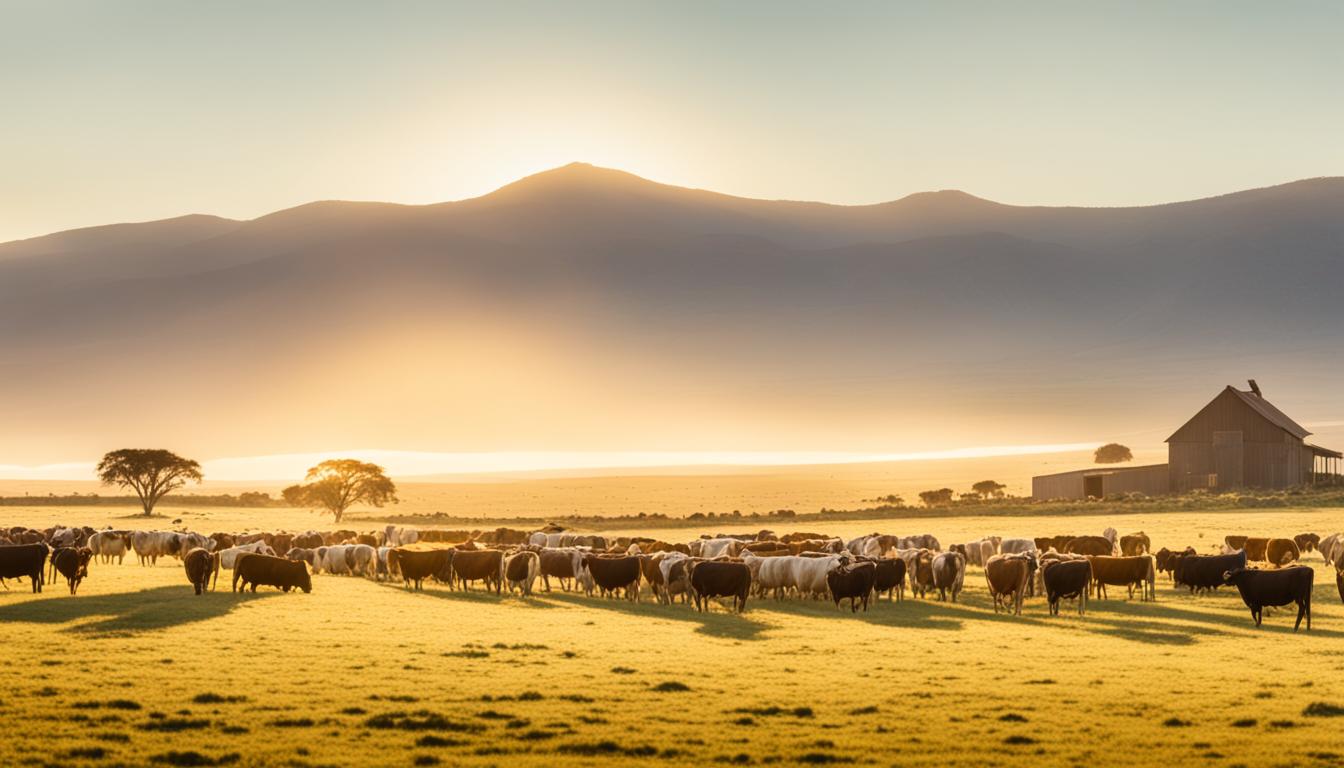If you’re a farmer or thinking about starting an agricultural business, you might wonder about the perks of livestock farming. It’s not just about raising animals for food; it’s also good for the planet. Let’s look at why livestock farming could be a smart choice for your farm.
Benefits of livestock farming are many and can greatly impact your farm, community, and the world’s food supply. Whether you’re into cattle farming, poultry farming, or dairy farming, knowing the benefits can guide your decisions and boost your farm’s success.
We’ll cover how livestock farming helps fight global hunger, boosts the economy, and creates jobs. It also helps use land wisely and supports nutrient cycling. Plus, it can add to your income and keep cultural traditions alive.
By the end of this guide, you’ll know the strong points of livestock farming. You’ll see how it can help your farm, community, and the earth. So, let’s get into it and see how livestock farming can change things for the better.
Introduction
Livestock farming is key to the world’s food supply and economic growth. It gives us nutritious food, creates jobs, and uses land wisely. This section highlights the many benefits of this important farming practice. It shows how it helps solve big issues like food security, protecting the environment, and making communities stronger.
Livestock farming is crucial for providing quality meat, dairy, and eggs. These foods are vital for people’s health and food security around the globe. The industry also boosts the economy by creating jobs and helping rural communities thrive.
This farming method is efficient with land, using areas not good for other crops. It makes farming more sustainable and helps protect the environment.
Livestock farming has many benefits beyond food and jobs. It helps with nutrient cycling, keeping soil fertile, and making renewable energy. These efforts make farming better for the planet.
The many benefits of livestock farming show its vital role in a sustainable future. By understanding these advantages, we see how important this farming is for our well-being and the planet’s future.
Reliable Source of Food
Livestock farming is key in giving us a steady and healthy food supply. It makes meat, dairy, and eggs, which are crucial for a varied and lasting food supply. This helps fight global hunger.
Meat, Dairy, and Egg Production
Animals like cattle, pigs, and poultry are important for meat production. They give us protein, minerals, and vitamins. Dairy farms produce milk, cheese, and yogurt, which are great for bones. Poultry farming gives us eggs, a food that’s both tasty and nutritious.
Addressing Global Food Insecurity
With more people on Earth and worries about having enough food, livestock farming is a good answer. It makes sure we have a wide range of nutrients. This is especially important in places where getting a balanced diet is hard. It helps make sure people everywhere have enough to eat and stay healthy.
| Livestock Farming Benefits | Meat Production Advantages | Dairy Farming Benefits | Poultry Farming Advantages |
|---|---|---|---|
| Reliable and nutritious food source | Rich in protein, minerals, and vitamins | Provides calcium and other nutrients | Steady supply of highly nutritious eggs |
| Diversified and sustainable food supply | Supports a balanced diet | Variety of dairy products (milk, cheese, yogurt) | Versatile and widely consumed food item |
| Addresses global food insecurity | Contributes to food security | Contributes to food security and nutrition | Contributes to food security and nutrition |
“Livestock farming is not just a source of food, but a vital component in addressing global food insecurity and ensuring a diverse, sustainable, and nutritious food supply.”
Economic Growth and Employment
Livestock farming is key to economic growth and job creation, especially in rural areas. It brings many benefits that help a region’s economy grow.
The profitability of livestock farming is a big reason for its economic impact. It gives farmers a steady income, which helps the local economy. This leads to more investment, jobs, and better living for those in the industry.
The advantages of animal husbandry go beyond money. This farming needs a lot of people to take care of the animals, process them, and get them to market. So, it’s a great job source in places where jobs are hard to find.
| Impact on Economic Growth | Impact on Employment |
|---|---|
| Generates steady revenue streams for farmers | Provides a labor-intensive source of employment |
| Supports local economies through investment and spending | Offers job opportunities in various aspects of livestock production |
| Contributes to overall economic development of a region | Particularly beneficial in areas with limited alternative job options |
Using livestock farming’s economic power, communities can grow, create jobs, and improve lives. This sector’s ability to make money and offer jobs is key to a region’s economic health.
Efficient Land Utilization
Sustainable livestock farming is a smart way to use land. It includes areas that are not good for crops. These lands can become useful for grazing and making forage.
Grazing on Marginal Lands
Putting livestock on marginal lands like grasslands and scrublands has big benefits. These places often have poor soil or little water, not great for crops. But, animals can eat the native plants, making these areas valuable for food and money.
This ability of animals to live on tough lands is a big plus of sustainable farming. Using these areas well helps farmers use their land better. It also makes farming more efficient.
| Advantages of Grazing on Marginal Lands | Sustainable Livestock Farming |
|---|---|
|
|
By using sustainable livestock farming and marginal lands wisely, farmers can make the most of their land. This helps make farming more sustainable and productive.
Environmentally Sustainable Practices
Sustainable livestock farming is great for the planet and helps cut down our carbon footprint. It’s key for keeping our ecosystems safe while we still need livestock products. By using eco-friendly methods, farmers help protect our environment.
One important way farmers use resources well is through rotational grazing. This lets pastures rest and stay healthy. They also turn animal waste into fertilizer, which is good for the soil and cuts down on synthetic fertilizers.
- Rotational grazing systems
- Effective animal waste management
- Manure as natural fertilizer
Farmers can also use renewable energy from animal waste, like biogas. This lowers our need for fossil fuels and helps create a circular economy. Waste becomes a valuable resource.
| Sustainable Practice | Environmental Benefit |
|---|---|
| Rotational Grazing | Preserves pasture productivity and biodiversity |
| Manure as Fertilizer | Enhances soil fertility and reduces the need for synthetic alternatives |
| Biogas Production | Generates renewable energy and reduces reliance on fossil fuels |
By using these sustainable farming methods, farmers help protect our natural resources and lower the livestock industry’s carbon footprint. This approach is good for the planet and makes farming sustainable for the future.
Nutrient Cycling and Soil Fertility
Sustainable livestock farming is key to nutrient cycling and keeping soil fertile. It uses manure as a natural fertilizer. This helps the benefits of cattle farming and keeps agricultural lands healthy and productive over time.
Manure as a Natural Fertilizer
Livestock manure is full of nutrients like nitrogen, phosphorus, and potassium. These are important for plants and soil health. When used right, manure makes soil better, holds more water, and boosts fertility. This helps crops grow well and supports sustainable livestock farming.
- Manure gives nutrients to the soil, cutting down on synthetic fertilizers and creating a natural cycle.
- Adding manure increases soil’s organic matter, which is key for health and productivity.
- Manure-based fertilizers help prevent soil erosion and keep soil moist, making it stronger against drought and other challenges.
Using manure as a fertilizer in livestock farming helps farmers. It supports sustainable livestock farming and makes farming last longer.
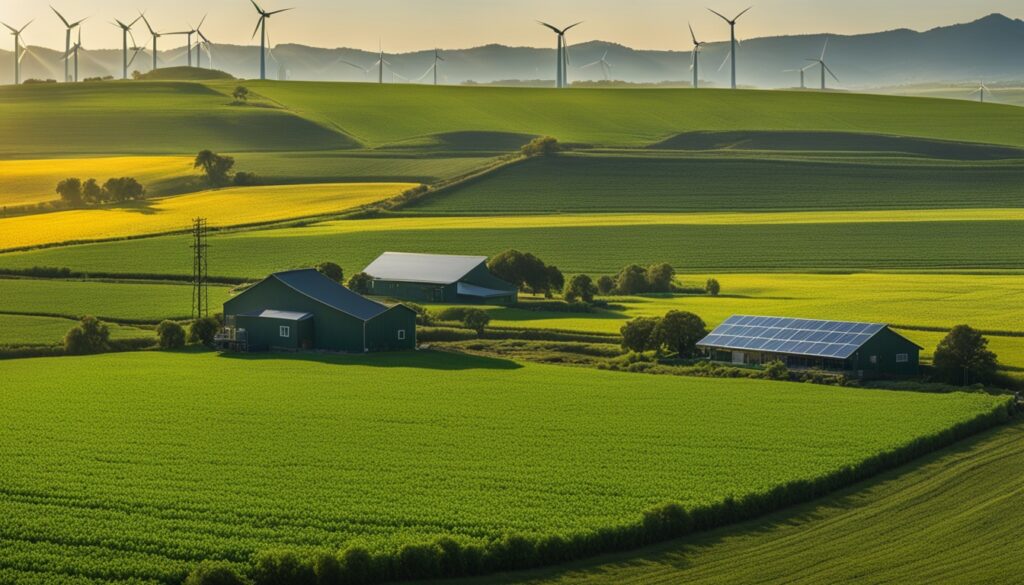
“Sustainable livestock farming is not just about the animals – it’s about nurturing the entire ecosystem, from the soil to the crops, to create a truly resilient and productive agricultural system.”
Diversification of Income Streams
Getting into livestock farming is a smart way to make more money. It makes your income more stable and strong. By adding animals to your farm, you can earn more and make your farm more profitable.
Livestock farming lets you make money in different ways. You can sell meat, dairy, or eggs. Or you can sell live animals, hides, wool, or even manure for fertilizer. This way, you’re not just relying on one thing for money. It makes your income more steady all year.
| Income Source | Potential Revenue |
|---|---|
| Meat, Dairy, Eggs | $50,000 – $200,000 |
| Live Animal Sales | $10,000 – $50,000 |
| Hides, Wool, Byproducts | $5,000 – $20,000 |
Adding livestock farming to your farm can also make you more profitable. You can use land that’s hard to farm and turn crop leftovers into animal feed. This makes your farm work better and be more sustainable, which means more money for you.
“Diversifying into livestock farming has been a game-changer for my family’s farm. Not only has it provided a reliable and consistent source of income, but it has also enabled us to become more self-sufficient and resilient in the face of market fluctuations.”
If you’re a seasoned farmer or new to farming, looking into animal husbandry is a smart move. It can help you make more money and make your farm stronger for the future.
Preservation of Cultural Heritage
Raising livestock has more than just economic benefits. It’s deeply tied to the cultural traditions of rural and agricultural communities. By keeping up with livestock farming, we protect the cultural identities that have lasted for generations.
In places like the Mongolian steppe and the American Southwest, raising livestock is key to the social life. It gives people a steady food source and income. It also shapes how they live and interact with each other. By continuing this practice, communities keep their unique lifestyles and share their knowledge with the next generations.
“Livestock farming is not just an economic activity – it’s a way of life that has sustained cultures for centuries. By preserving these traditions, we can ensure that the rich tapestry of human experience remains vibrant and alive.”
Preserving cultural heritage through livestock farming is important for many reasons. Local breeds and techniques help keep the world’s biodiversity alive. They also promote sustainable land use, connecting people more deeply with nature.
In our fast-changing world, raising livestock helps us keep our human essence alive. By valuing animal husbandry, we celebrate our global diversity. This way, our cultural past shapes our future.
what are the advantages of livestock farming
Livestock farming is key to a sustainable food system. It provides food, boosts the economy, and helps the environment. These benefits make it crucial for our food needs.
Reliable Source of Nutrition
Livestock farming is vital for food security. It gives us meat, dairy, and eggs, which are packed with nutrients. These foods are essential for our health and well-being.
Economic Opportunities
This farming supports the economy by creating jobs and income in rural areas. It offers work in animal care, processing, and marketing. This helps grow the agricultural sector.
Efficient Land Utilization
Livestock can eat on lands not good for crops. This makes the most of our land. It increases food production and helps manage our natural resources well.
Environmentally Friendly Practices
When done right, livestock farming is good for the planet. Livestock manure acts as a natural fertilizer. This helps the soil and keeps our ecosystem healthy.
Diversified Income Streams
Farming livestock lets farmers earn from different areas. This reduces the risk of relying on one crop. It makes farming communities more stable financially.
Livestock farming has many benefits. It supports food security, economic growth, and environmental health. By using these benefits, we can create a better food system for everyone.
| Advantage | Description |
|---|---|
| Reliable Source of Nutrition | Livestock farming produces meat, dairy, and eggs, which are essential for human health and well-being. |
| Economic Opportunities | Livestock farming creates employment and generates income for rural communities. |
| Efficient Land Utilization | Livestock can graze on marginal lands unsuitable for crop production, maximizing agricultural output. |
| Environmentally Friendly Practices | Manure from livestock can be used as a natural fertilizer, promoting soil fertility and ecosystem health. |
| Diversified Income Streams | Livestock farming allows for multiple revenue sources, improving the resilience of farming communities. |
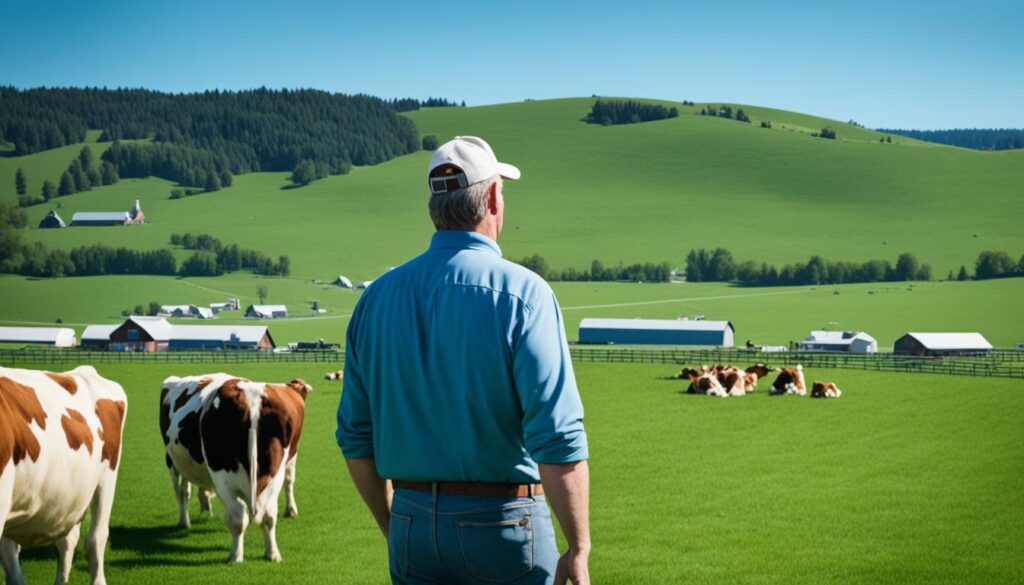
“Livestock farming is a vital component of a sustainable food system, offering a diverse array of economic, environmental, and social benefits.”
Improved Animal Welfare
The benefits of cattle farming and sustainable livestock farming include better animal welfare. These practices focus on the health and happiness of the animals. This makes food production more ethical and sustainable.
Thanks to new techniques, farmers now focus on their animals’ comfort and natural behaviors. They provide enough space, shelter, and clean water. They also use kind handling and transport methods. This way, animals live in a way that supports their health and happiness.
- Reduced stress and anxiety through low-impact handling methods
- Improved physical health and reduced risk of injury or disease
- Opportunities for natural behaviors, such as grazing, roaming, and socializing
- Veterinary care and preventive measures to maintain animal health
Putting animals first in sustainable livestock farming helps them and the farm in the long run. Animals that are healthy and happy are more productive and less likely to get sick. This leads to better food quality and more reliable farming.
“Promoting animal welfare is not only the right thing to do, but it also makes good business sense. Healthy, content animals are the foundation of a successful and sustainable livestock farming operation.”
Adding animal-focused practices to cattle farming shows a new way of making food. It shows that caring for animals is key to making farming sustainable.
Renewable Energy Sources
Sustainable livestock farming is a great way to use renewable energy. One way is by making biogas from animal waste. This helps lower the carbon footprint of farms.
Biogas Production
Animal waste from farms can be turned into biogas. This happens through anaerobic digestion. It makes a fuel called biogas, mostly methane and carbon dioxide.
Using biogas in sustainable farming has many benefits:
- Renewable energy generation: Biogas can make electricity or heat, cutting down on fossil fuel use.
- Waste management: Turning waste into energy reduces the environmental impact of farming and manages waste better.
- Reduced greenhouse gas emissions: Using methane from waste as fuel cuts down on a strong greenhouse gas, making farming more sustainable.
The digestate, a byproduct of making biogas, is rich in nutrients. It can be used as fertilizer. This approach to energy and waste shows how sustainable farming is beneficial.
| Biogas Production Metrics | Sustainable Livestock Farming | Conventional Livestock Farming |
|---|---|---|
| Biogas Yield (m³/ton of waste) | 150-300 | 100-200 |
| Methane Content (%) | 55-70 | 50-65 |
| Greenhouse Gas Emission Reduction (%) | 60-90 | 30-60 |
Using renewable energy like biogas, sustainable farming can cut its carbon footprint. It also creates valuable energy and supports a circular economy.
Ecosystem Services
Livestock farming can be a green way to help the environment and local communities. It keeps biodiversity high and manages water resources. This makes it key for protecting nature.
Sustainable livestock farming keeps nature’s variety alive. Animals help keep grasslands and pastures diverse, which supports many plants and animals. This makes the environment healthier and more resilient.
Livestock also helps with water. Good grazing practices make soil better and help water soak in. This cuts down on erosion and floods. Plus, animal manure acts as a natural fertilizer, boosting soil health and keeping water in the ground.
- Maintains biodiversity by supporting diverse grassland and pasture ecosystems
- Regulates water resources through improved soil health and water infiltration
- Provides natural fertilizer through livestock manure, enhancing soil fertility
Understanding the benefits of cattle farming and similar systems helps us farm better. It’s good for the planet and helps rural communities and the world’s food supply.
“Sustainable livestock farming is not just about food production; it’s about preserving the delicate balance of our natural world.”
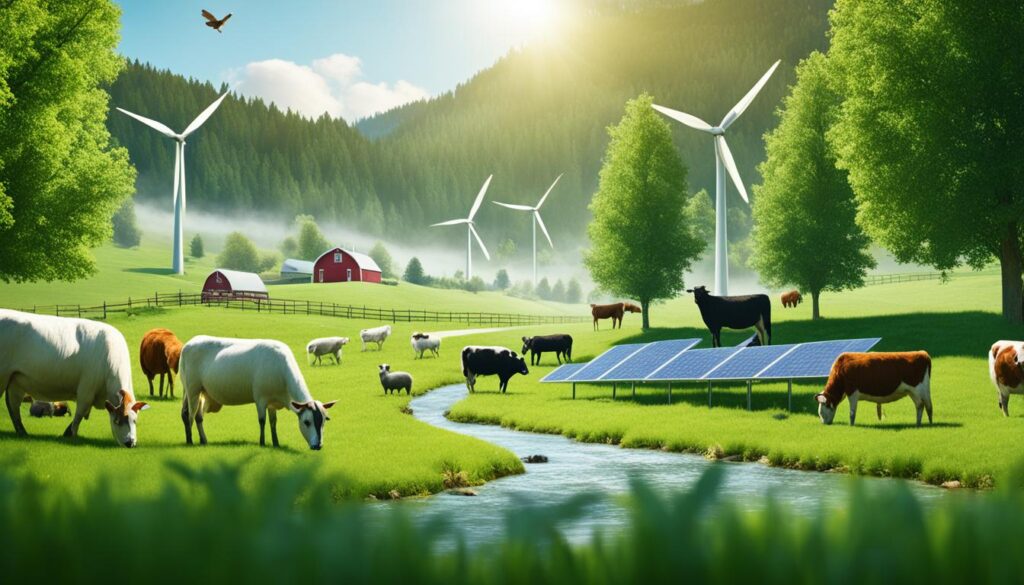
Rural Community Development
Livestock farming is key to keeping rural communities strong in the U.S. It offers good jobs and helps local economies grow. This helps keep the social and cultural life of these areas vibrant.
Raising livestock helps rural areas develop. It creates jobs in caring for animals, making feed, and moving goods. These jobs give people in rural areas a steady income. This keeps skilled workers from leaving for cities.
The success of livestock farming also boosts the local economy. Farmers and their workers spend their money in the community. This money goes to local stores, services, and businesses. This cycle of spending helps the economy grow and keeps rural areas thriving.
Livestock farming also keeps rural traditions alive. The skills and knowledge of animal care are important to the local culture. By keeping these traditions, livestock farming helps rural areas stay true to their roots.
| Advantages of Raising Livestock | Livestock Farming Profitability |
|---|---|
|
|
“Livestock farming is the backbone of many rural communities, providing jobs, income, and a sense of cultural identity that is essential for their long-term sustainability.”
Reduced Carbon Footprint
Sustainable livestock farming is key to a greener future. It helps reduce carbon emissions and supports the environment. By using new methods, farmers can lessen the harm to our planet and fight climate change.
Using renewable energy is one way farming can cut down on carbon. Solar panels, wind turbines, and biogas from animal waste offer clean energy. This reduces the need for fossil fuels and lowers harmful gases.
Also, better manure handling, precise feeding, and smart grazing help make farming more efficient. These methods cut down on carbon dioxide, methane, and other gases.
By choosing these sustainable ways, farmers can lower their carbon footprint. This helps make our food system better for the planet and people.
“Sustainable livestock farming is not just about producing food; it’s about preserving the planet for future generations.”
Climate change makes sustainable farming more important than ever. By using green practices and tech, farmers can help solve the problem. They can make a better future for everyone.
Conclusion
This article has shown the big benefits of livestock farming. It’s key in solving global problems, boosting the economy, and keeping the environment safe. By knowing its perks, you can make smart choices and add livestock farming to your work. This will help make the future safer and wealthier for everyone.
Meat, dairy, and eggs from livestock help feed the world. They use land well and are good for the planet. This farming also creates jobs and keeps traditions alive, helping communities all over.
Livestock farming is good for the soil and helps plants grow. It also brings in more money and makes clean energy. By using these benefits, you can make your farm better and help create a future that’s sustainable and fair for all.
